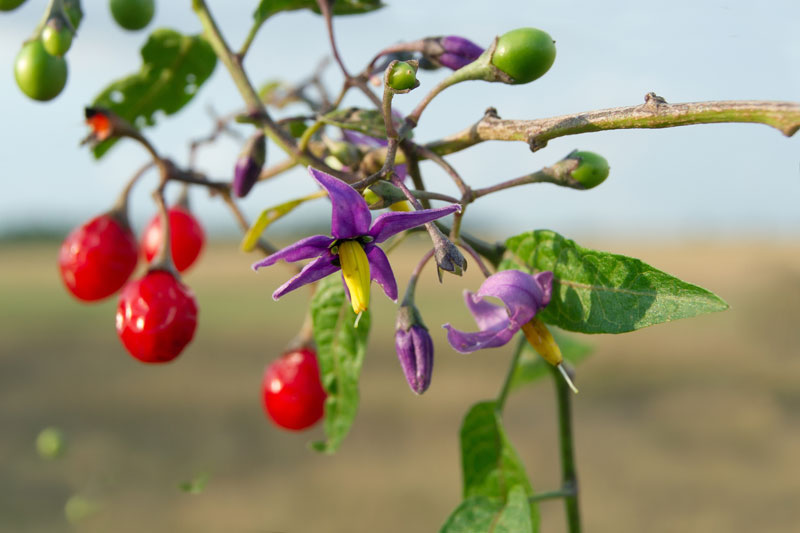Bittersweet nightshade (Solanum Dulcamara)

The bittersweet nightshade is a herbaceous climbing plant from the nightshade family. It is native to the climatically temperate regions of Europe, Asia and northern America. There it grows in sunny, moist locations.
The leaves and unripe fruits of the bittersweet nightshade contain toxic steroid alkaloids and saponins. 30-40 unripe berries can be fatal for children, while the fully ripe, red fruits are almost alkaloid-free and thus harmless.
For medicinal purposes, the stems of the plant are used, the so-called “bittersweet stems”. These contain 0.07 to 0.4 percent steroid alkaloid glycosides, steroid saponins and tannins. Already in the Middle Ages, bittersweet stems were used for jaundice, fever and as a painkiller. In modern times, the tannins are of particular interest, as they are responsible for the itch-relieving and tissue-condensing effect. This medicinal herb has cortisone-like, anti-inflammatory and anti-allergic effects. Sebaceous and sweat glands release less secretion and the permeability of the blood capillaries is reduced. This slows down both inflammatory and allergic reactions.
In human medicine, bittersweet stalks are mainly used for chronic eczema and neurodermatitis. In veterinary medicine, a major area of application for this medicinal plant is sweet itch in horses.